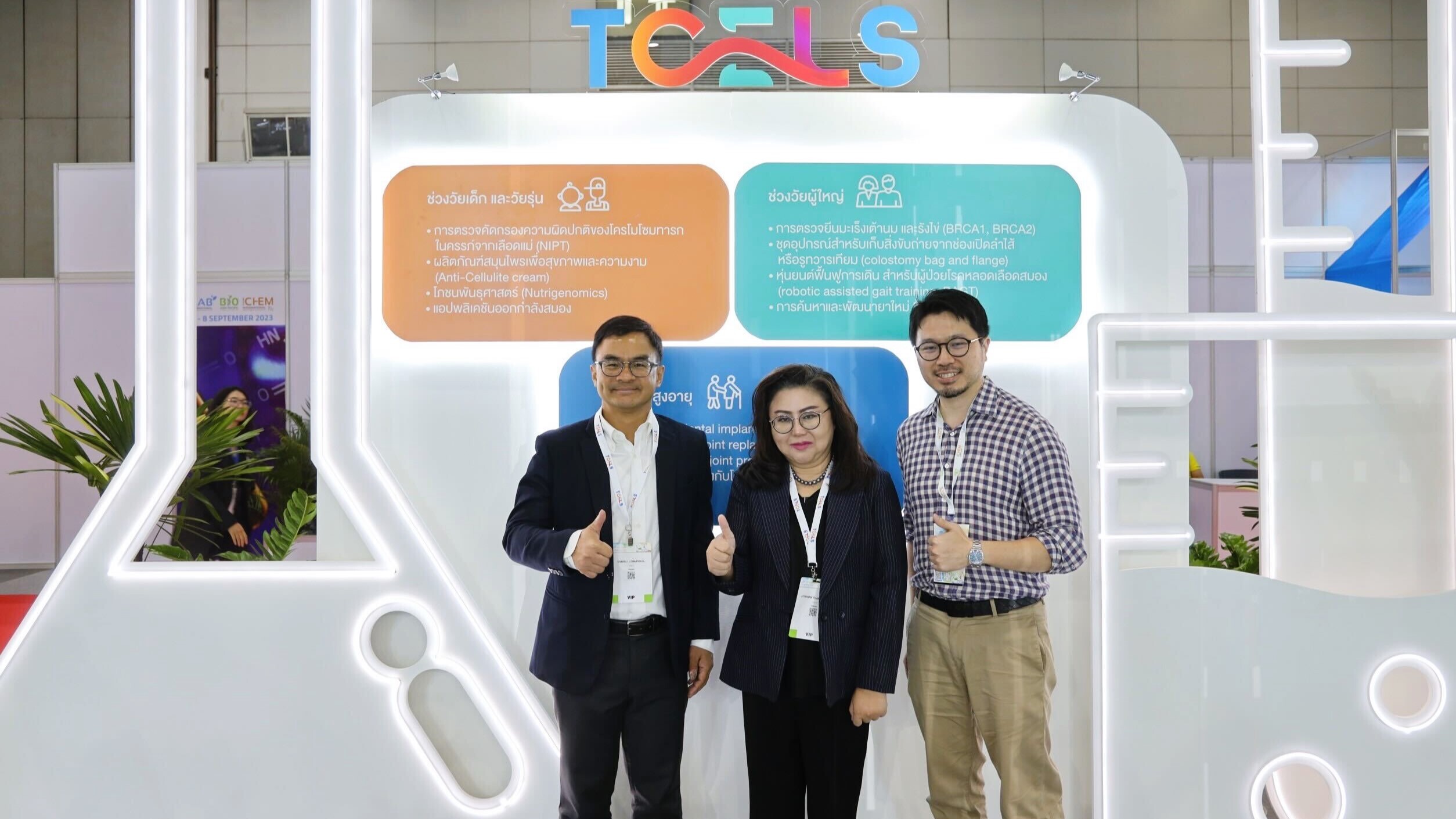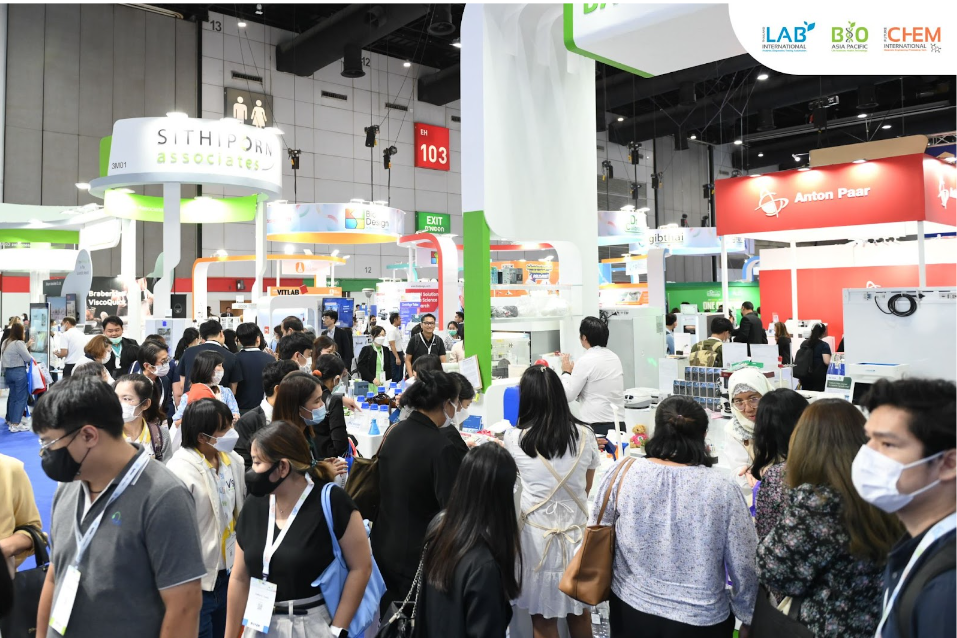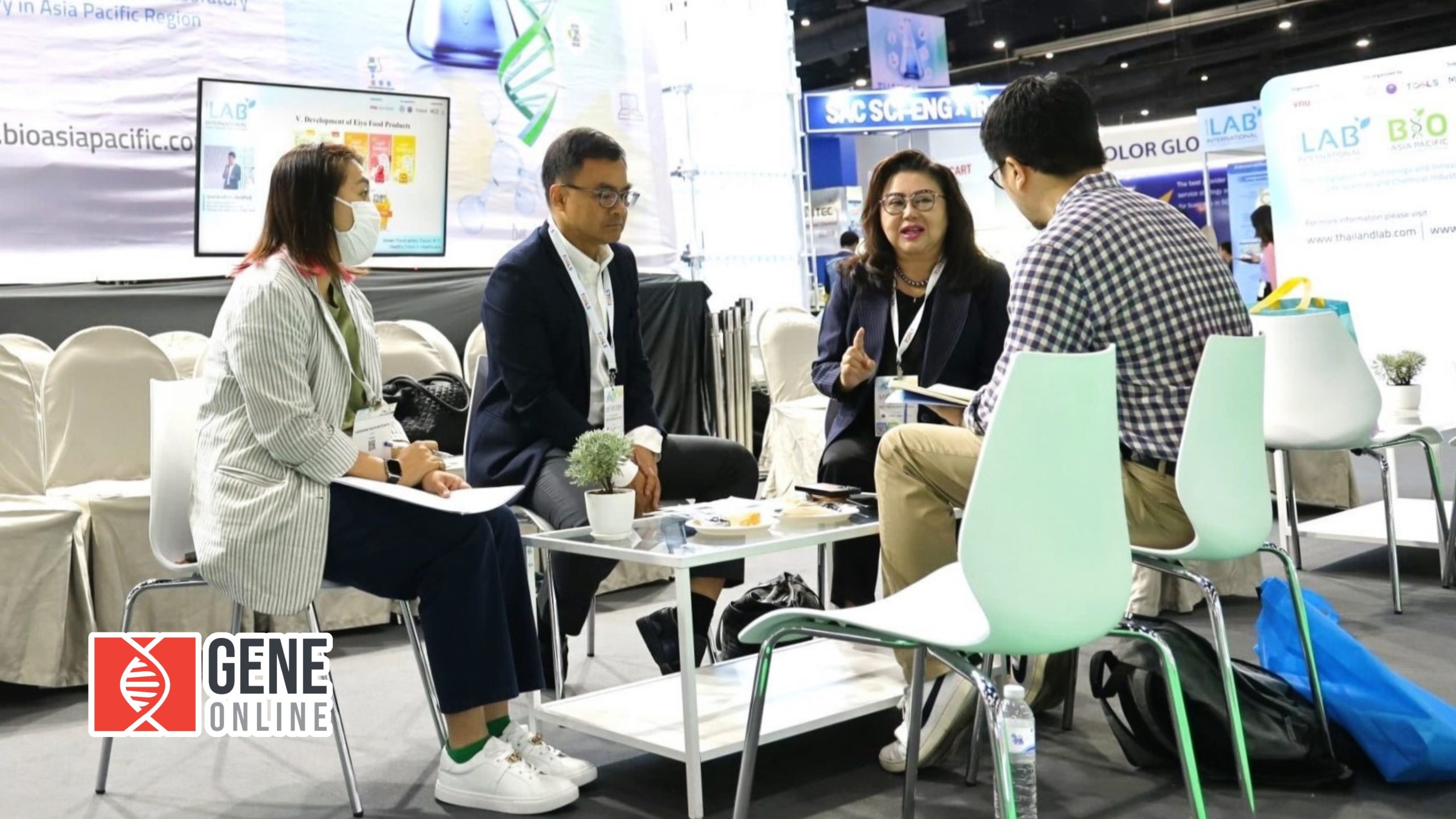Connecting the Dots: TCELS Leads the Way for Thailand’s Life Sciences and Healthcare Innovations
Thailand boasts a rich cultural heritage and stunning natural landscapes. Economically, it has emerged as a newly industrialized country, ranking as the second-largest economy among ASEAN member states and the ninth-largest in all of Asia, with a GDP reaching US$495.2 billion in 2022. Apart from the world-renowned tourism industry, it is particularly noteworthy that Thailand’s life sciences and healthcare sector has weathered the challenges of the COVID-19 pandemic and is now experiencing a robust resurgence, fostering innovations and attracting considerable attention from both local and international stakeholders.
Bio Asia Pacific, with the 2023 edition grandly hosted at Bangkok International Trade and Exhibition Centre (BITEC) from 6-8 September, is Thailand’s annual premier life sciences conference and exhibition that showcases the country’s accomplishments and innovations in biotechnology, life sciences and healthcare services, bringing together industry elites and renowned researchers in Asia Pacific. Following the COVID-plagued edition of 2022, Bio Asia Pacific 2023 marked a triumphant comeback with a significant 25% increase in visitor numbers compared to last year’s event.
Thomas F. Huang, CEO of GeneOnline also participated in this monumental event and had the privilege of interviewing Dr. Jittiporn Thammajinda, CEO of the Thailand Center of Excellence for Life Sciences (TCELS), and Dr. Chairat Uthaipibull, Deputy CEO of TCELS. In this enlightening conversation, they delved into valuable insights into Thailand’s rapidly growing life sciences and healthcare sector, key roles and contributions of TCELS, Thailand’s position in the Asia-Pacific market, and the government’s unwavering support for life sciences companies and investors seeking opportunities in Thailand.
Related article: Exploring AI’s Impact on Biotech Breakthroughs and International Funding
Thailand’s Dynamic Biotech and Healthcare Ecosystem
Dr. Thammajinda first outlined the diverse landscape of Thailand’s life science industry, which encompasses various pillars such as biotechnology, pharmaceuticals, gene and cell therapy, nutraceuticals, cosmeceuticals, genomes, and medical devices. TCELS, a government agency, has the responsibility of providing a link between innovation in life sciences and investment and spurring domestic and international partnerships in the life science business in Thailand. Currently, major focus areas of the agency include cell and gene therapy, genome research, nutraceuticals, cosmeceuticals, medical devices, and digital health innovation, with a keen eye on medical AI. This strategic positioning aligns with Thailand’s goal to support and excel in these specific segments within the life science industry.

As Dr. Thammajinda pointed out, the Thai government plays a key role in ensuring equitable healthcare access. “I believe that the government needs to be the key player in order to drive and navigate this industry, to be sustainable, and to grow toward the global level in terms of healthcare,” she said. “The Thai people need to have a platform or an organization like ours (TCELS), allowing them to access healthcare and wellness services equally with equity and cost-effectiveness.” Apart from reducing disparity, she also emphasized the importance of government collaboration in addressing emerging diseases and other healthcare challenges such as the pollution of PM 2.5 in the northern regions.
The conversation then shifted to Thailand’s national health insurance policy, managed by the National Health Security Office (NHSO). The “Universal Coverage Scheme”, also known as the “30-baht scheme”, allows Thai citizens to access healthcare with a payment of 30 baht (approximately US$0.9) per visit, promoting health equity and reducing disparities. TCELS highlights its collaboration with NHSO in supporting innovative solutions, such as affordable medical devices like colostomy bags and prosthetic limbs, which bring about a big difference in patients’ quality of life.
Clinical Trials in Thailand: A Cost-Effective Gateway to Asia-Pacific
As a hotspot for emerging diseases, Thailand provides a unique opportunity for real-world research and development, which allows researchers to work directly with patients. During the interview, Dr. Uthaipibull underscored Thailand’s growing importance as a clinical trial hub. Thanks to the country’s top-notch hospitals and medical schools, along with the availability of high-caliber clinicians and skilled researchers, Thailand has become an attractive destination for global pharmaceutical companies seeking to conduct clinical trials. The cost-effectiveness of the service and large patient population further sweeten the deal.
TCELS plays its part in this realm by facilitating connections between researchers, clinical trial laboratories, and regulatory bodies like the Thai FDA. The agency also provides financial support and maintains the Thailand Clinical Research Registry (TCTR). Established in 2009, TCTR serves as a comprehensive online research database and its mission is to promote the prospective registration of clinical trials conducted in Thailand before subject recruitment, ensuring research transparency and data accessibility, reducing redundancy, and minimizing publication bias.
According to Dr. Uthaipibull, there are already numerous ongoing clinical trials in Thailand. Yet, there is a need to expand capacity to not only host trials by foreign pharma companies but also facilitate local innovations. He stated that TCELS aims to build this capacity, ensuring that Thai researchers and innovators can conduct trials independently within the country, reducing the need to rely solely on foreign investment.

Connecting the Dots: TCELS as a Catalyst for Thailand’s Biotech Innovation
Dr. Thammajinda further elaborated that TCELS has emerged as a central figure in Thailand’s life sciences and healthcare landscape, especially in its support for innovative projects and the development of life-saving technologies. The public organization serves as a granting and funding agency, offering necessary financial aid to researchers and entrepreneurs working on projects at various stages, from research and development to commercialization. TCELS also assists innovators and entrepreneurs in finding additional sources of funding, partnering with grantors, and matching them with investors interested in investing in life sciences startups.
“We encourage people to develop from Thailand, within the Thai people and Thai material. Our main goal and our vision is to make the life science industry one of the top 10 industries in Thailand, and also help the Thai people to access healthcare products and services with equality and equity. That is the main thing TCELS is doing right now,” said Dr. Thammajinda.
The interview particularly covered a success story involving Genepeutic Bio, a Thai startup specializing in CAR T-cell therapy. TCELS has supported its development for over 15 years, and the company has now reached commercialization status as the first GMP-certified CDMO for cell and gene Therapy in Thailand. Genepeutic’s emergence illustrates the way in which TCELS supports and nurtures promising biotechnology ventures, including providing funding, regulatory assistance, certification acquisition, upgrade of manufacturing facilities, and partnership facilitation.
Besides propelling advancements in Thailand’s life sciences and healthcare sector, TCELS has also shown its commitment to the United Nations’ Sustainable Development Goals (SDGs) and addressing climate change. The agency acknowledges the significant carbon footprint of the healthcare industry and aims to encourage innovation in reducing emissions. One example mentioned in this interview was the production of colostomy bags from rubber waste.

Government Incentives and International Collaboration
For life sciences companies eyeing investment opportunities in Thailand’s thriving life science sector, Dr. Thammajinda emphasized the role of Thailand’s Board of Investment (BOI) in providing tax incentives and favorable conditions for technology-led companies. Thailand’s government encourages private sector investment in technology and innovation, offering tax exemptions and support through organizations like TCELS.
The agency, acting as a one-stop service center, connects companies with the BOI, Thailand FDA, and other regulatory bodies, facilitating a smooth entry into Thailand’s healthcare market. Thai companies, on the other hand, are actively seeking partnerships and funding opportunities, making the country a hotspot for investors and businesses alike. In this regard, TCELS can serve as a catalyst for these cross-border collaborations, nurturing startups and facilitating international funding.
In the coming years, Thailand’s life sciences and healthcare sector will stand as the next beacon of resilience and innovation in the Asia-Pacific region. With TCELS at the forefront, the nation could offer a dynamic environment for life sciences companies and investors from around the world.
©www.geneonline.com All rights reserved. Collaborate with us: service@geneonlineasia.com








